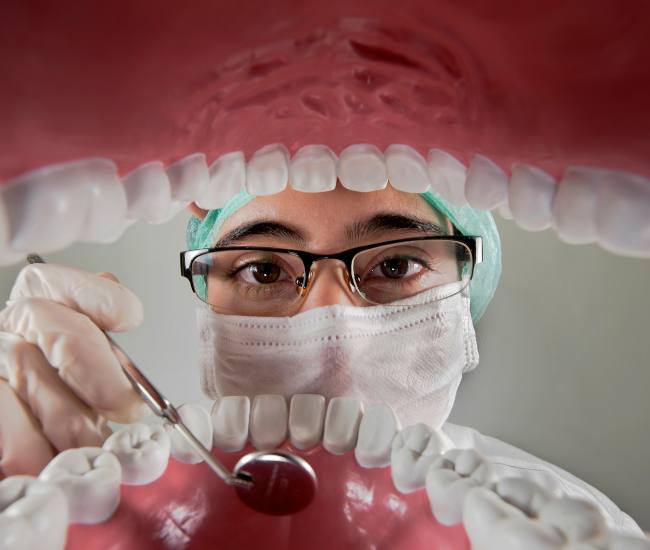
What is oral cancer?
Oral cancer starts in the mouth cells. A cancerous (malignant) tumour is a group of cancer cells that can grow into and that does not go away and can spread to other areas causing serious problems
Oral cancer includes subsites like cancers of the lip, jaw , tongue, hard palate , buccal mucosa and retromolar trigone.
What are the symptoms of oral cancer?
Who gets oral cancer?
How is oral cancer treated?
The treatment for oral cancer is the same way many other cancers are being treated with surgery to remove the growth of cancer, followed by therapy of radiation and/or chemotherapy (drug treatments) to destroy any other cancer cells.
How is oral cancer prevented?
Researchers think that oral cancer starts when the DNA in the cells inside your mouth gets destroyed. To prevent oral cancer include:
What type of surgery is done for oral cancer?
Basically, when a person has cancer of the mouth the main treatment would be surgery. This may have to be followed by radiation and chemotherapy depending on the stage of the disease.
The surgery for the cancer involves wide excision of the lesion. A clear and proper margin is of paramount importance. Wide excision however may mean removing the mandible or the jaw bone if the cancer is close to it or involving it. The surgical challenge in oral cancer is to do a proper reconstruction.
Without proper reconstruction the patient is bound to have severe disturbances in speech and swallowing. Fortunately for patients there are now many choices for reconstruction.
This may include simple reconstruction like a skin graft or local flaps.
Intermediate level reconstruction like transferring the muscle from the chest a procedure known as PMMC which stands for pectoralis major myocutaneous flap.
Advanced reconstruction options are known as free flaps in which the tissue from either the forearm or from the leg bone is harvested along with its blood supply and used to fill in the defect in the oral cavity.
Though cosmetically and functionally free flaps are superior it may not be suitable for all patients especially those who are aged and have atherosclerosis of the blood vessels.
While discussing about surgery with your onco surgeon make sure you discuss about the reconstructive options and suitability for it.
Is it necessary to operate the neck in case of oral cancer?
The first area of spread of oral cancer is to neck lymph nodes. In many cases the cancer may have already spread to the neck lymph nodes or there may be high risk of this happening.
For this purpose, is is very essential that the lymph nodes in the neck be removed along with oral cancer by a procedure known as neck dissection.
In certain situations where the risk of spread is very low, neck dissection can be omitted but in most cases it is required.
Removing the neck lymph nodes helps us know the exact stage of the cancer and decide about whether radiation and chemotherapy are required after surgery.
What is radiation? Can it be used instead of surgery for treatment of oral cancer?
High doses of radiation can kill cancer cells. This forms an important part of oral cancer treatment. In certain situations, radiation can be a substitute for surgery for oral cancer treatment. In most cases both surgery and radiation may be required
